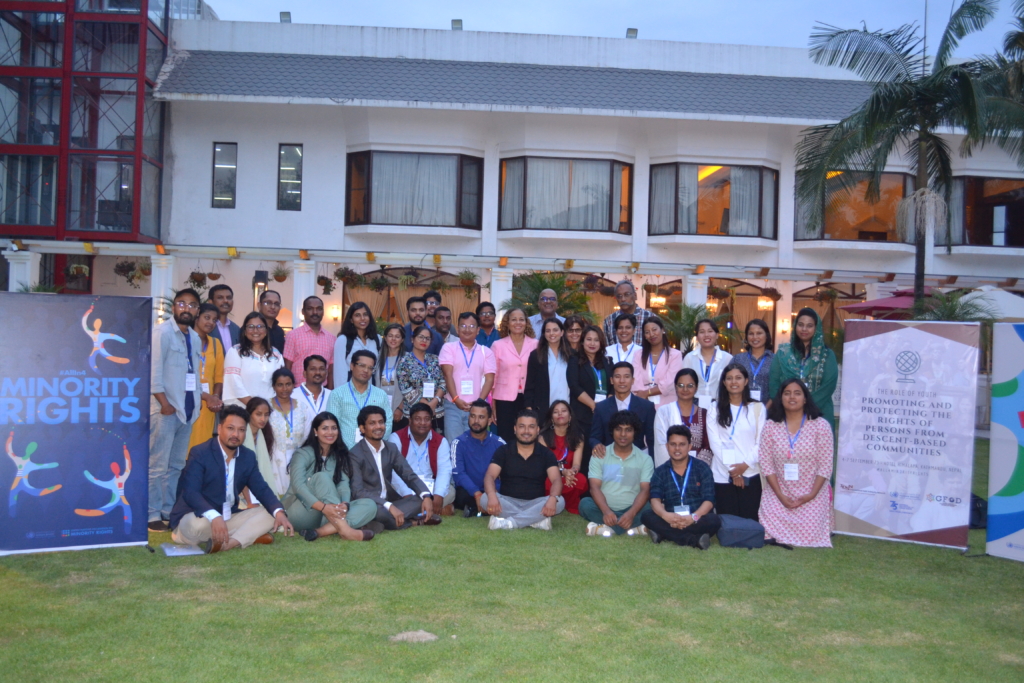Marking the 75th anniversary of the Universal Declaration of Human Rights (UDHR), a series of events focusing on combatting descent-based discrimination, through the prism of access to justice and the role of youth in South Asia, were held in Kathmandu. Spanning four days, from September 4th to 7th, 2023, the events were organized jointly by IPMS/Office of the High Commissioner for Human Rights, the International Dalit Solidarity Network (IDSN) and the Global Forum of Communities Discriminated on Work and Descent (GFOD).
Engaging youth in the fight against descent-based discrimination
The first day saw a vibrant workshop gathering 60 individuals, including 50 young participants from diverse backgrounds such as the LGBTQI+ community, persons with disabilities, and both descent and non-descent-based communities. Representing nations like Bangladesh, India, Nepal, Pakistan, and Sri Lanka, the discourse centered on how to amplify the rights of those hailing from descent-based communities. The essential idea was to position young people at the forefront of this movement, molding the future trajectory of human rights in consonance with the Universal Declaration of Human Rights commitments.
The subsequent day concentrated on engaging youth even further. A comprehensive training on anti-discrimination, grounded in international human rights law, opened new avenues for advocacy, providing participants with tools to challenge and rectify systemic issues.
Incorporating national human rights institutions in the fight against discrimination
On September 6th, a crucial dialogue was initiated with bodies like the National Human Rights Commission (NHRC) of Nepal and the National Dalit Commission (NDC). Alongside several NGOs, the conversation delved into evaluating the contributions of National Human Rights Institutions in mitigating descent-based discrimination and suggesting avenues for improvement. During all three events collecting good practices was at the forefront.
A visit to a Dalit community and political dialogues
The final day involved a visit to a Dalit community in Suthan. Engaging with community leaders, the IPMS team deepened its understanding of ground realities. This was followed by constructive consultations with the Dalit NGO Federation, an umbrella organization representing over 500 NGOs. The day culminated in a significant dialogue with 12 Nepalese parliamentarians, shedding light on the progression and application of anti-discrimination legislations.
A platform for change
In retrospect, the four-day gathering successfully achieved its aims of energizing the youth, directly addressing issues of descent-based discrimination, and providing them with advocacy tools. Moreover, the events provided a platform for participants to present proposals to IPMS, ensuring that the momentum built during these Kathmandu sessions is carried forward into future endeavors.

